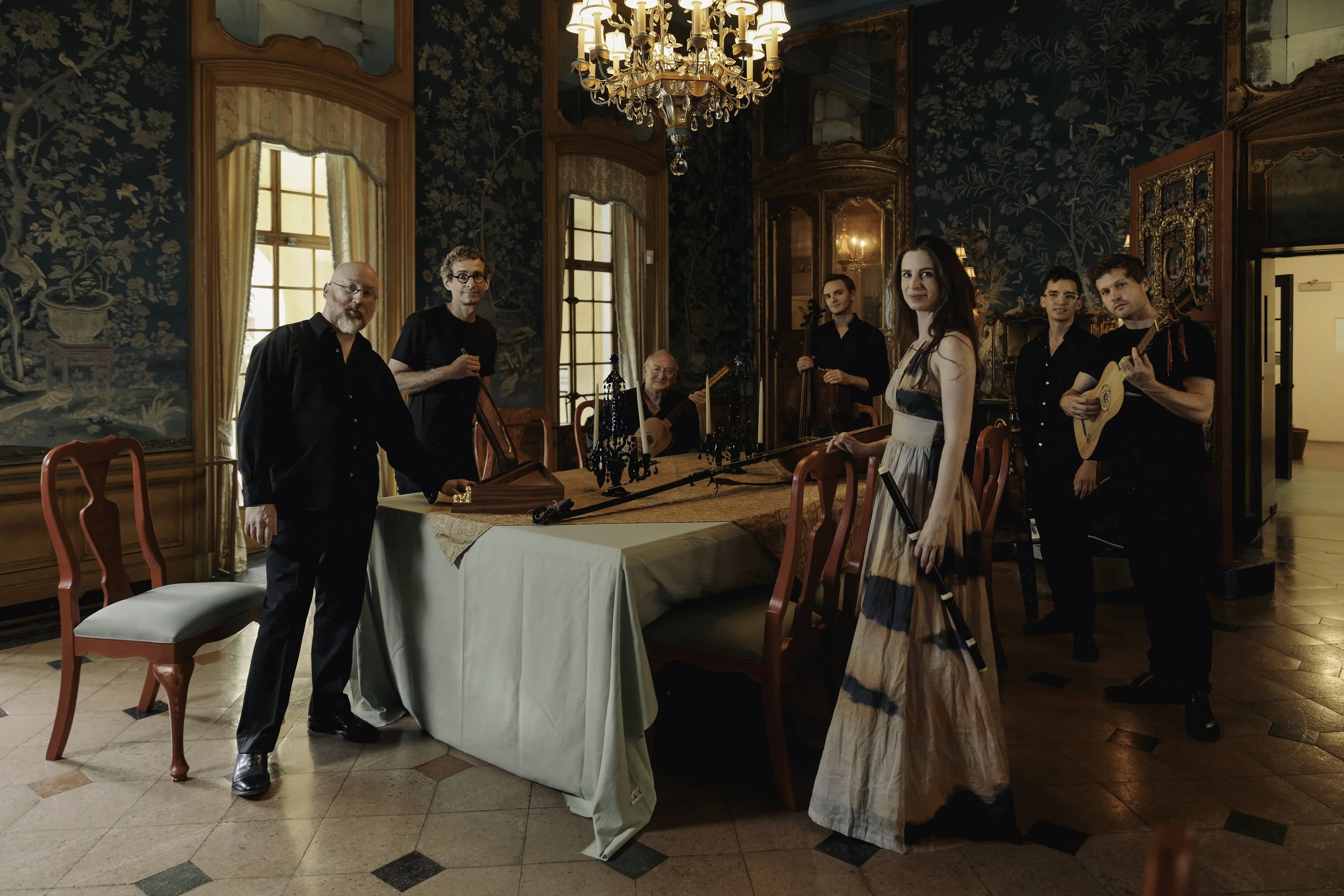Strawberry Fields: The Music of G.F. Handel and Ignatious Sancho
Ruckus is joined by Emi Ferguson, flute, and Rachel Ellen Wong, violin.
While George Frideric Handel and Ignatius Sancho never met each other, they inhabited the same world, and shared one thing for certain: the transcendent joy that comes from a life of music and dance with good company. And if there is one thing that encapsulates the joy of togetherness in 18th-century England it was the English Country Dance. Sweating, laughing, spinning, holding hands…. Propelled onwards by the unrelenting groove of the music.
Ruckus is a shapeshifting, collaborative Baroque ensemble that’s been described as “the world’s only period-instrument rock band.” The NYC-based ensemble aims to fuse the early-music movement’s questing, creative spirit with the grit, groove and jangle of American roots music, creating a sound that is “achingly delicate one moment, incisive and punchy the next.” (New York Times)
Ignatius Sancho was a remarkable member of 18th-century London and was a pivotal figure in the abolition movement in England. He is one of the first Black musicians to publish their compositions and was likely the first British African to vote. He was born on a slave ship en route from Africa to the Caribbean in 1729, and was brought to England as an enslaved person when he was two years old. In Greenwich, England, he was given to three young girls, who decided to give the child the surname of Sancho (after the Cervantes character). Ignatius’ luck began to change upon meeting a family friend, the Duke of Montagu, who fostered Ignatius’ education and became his leading advocate. Ignatius eventually escaped his enslavement and was supported by the Montagu family, from whom he received a modest inheritance. This allowed him to support himself and pursue his dream of becoming an actor. Following a brief acting career, he opened a grocery and oil supply business in Westminster where he worked and created community until his death. Ignatius began to be known in wider circles when, in 1766, correspondence between himself and the popular novelist Laurence Sterne was published.

